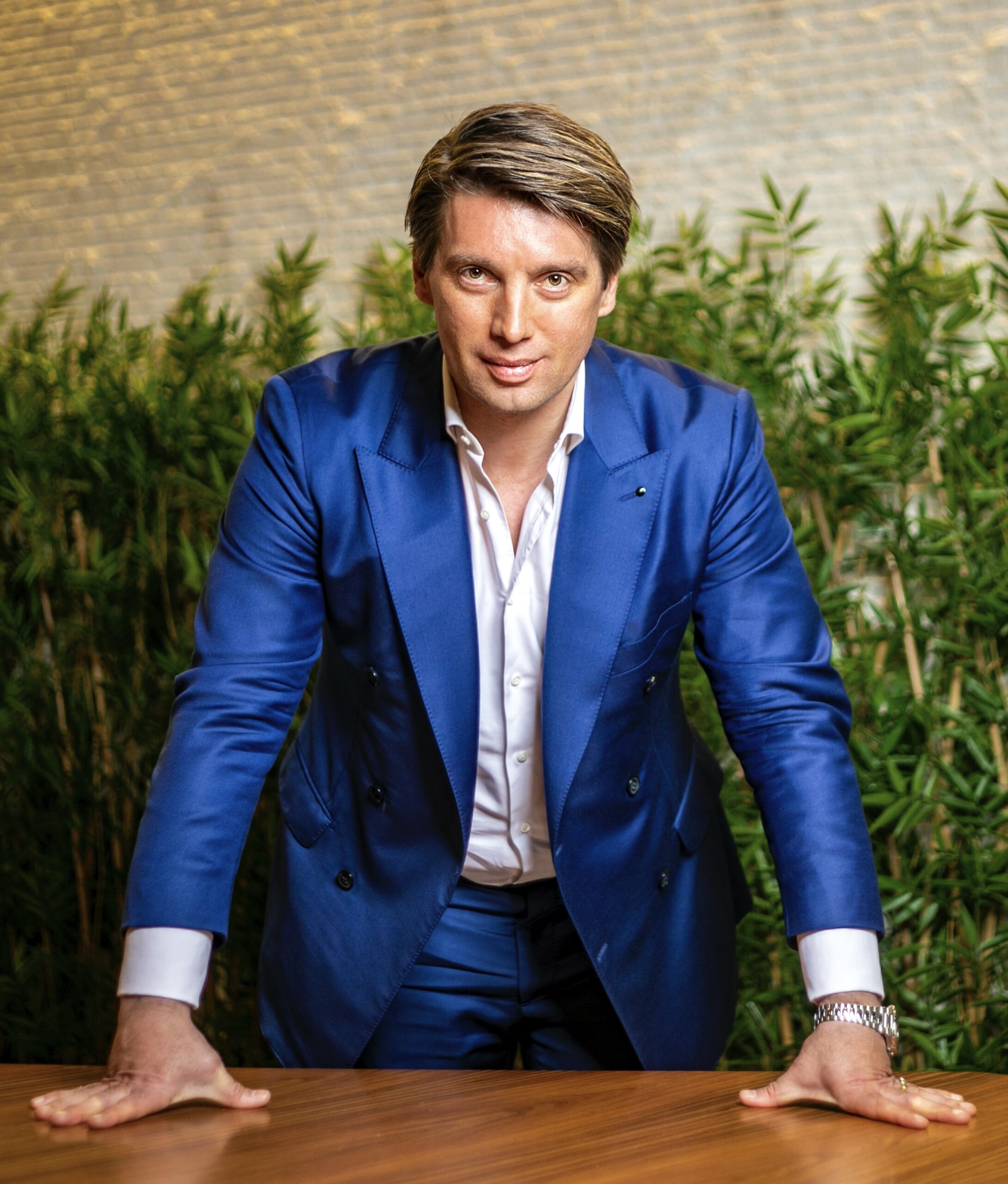The COO of Blocksport will speak at the EPSI Annual Conference “Olympic Values & Sports Innovation” in Olympia to inspire attendees to think on the impact they can create in what they do by empowering their sport businesses in best possible way

When it comes to investing, trust, transparency, and traceability are key. As today’s sports sector is one of the fields where investments bring the most value, only trustworthy leaders can guide and inspire change to achieve the most. Samir Ceric is one of them. Mr Ceric is the current COO of Blocksport, a Swiss sports tech company which built one of the most engaging community hubs worldwide by adopting Web3 and blockchain technologies, operating in the sports sector. Samir is also an investor, entrepreneur, a mentor, public speaker and a philanthropist living in London. From the 6th to the 10th of October, Samir will be one of the Keynote Speakers at the EPSI – European Platform for Sport Innovation – Annual Conference in Olympia (GR) dedicated to sports Innovation, to enlighten participants about sport business, trends, and the power of innovation in driving change in sports.
“21st century innovation inside the sports sector is something that the sports sector itself has never seen before”
Samir, what brought you to the sports industry?
I feel like I was born as a sportsman. I’m a former elite athlete. I used to play handball in what was at the time Yugoslavia. My teammates won the Olympic gold and world championships. I came to the UK as a teenager and I set up a handball club at my university: we won the England National Championships, we played in the UK cup final and I was drafted to play for the GB team at the Olympics, but my career in M&A took over so I focused on that. A few years ago, I got back into the sport more on the business side, so I became the chairman of the football club from which Edin Dzeko came from, and I sit in the ownership structure of 27 football clubs around the world, including the City Football Group. I’m surrounded by people that not only work in sports but invest in sports and make things happen. Also, my family and my children are incredibly sporty. I think sport is more than a business for me, it’s a way of life. I hugely believe that sports and exercise positively affect mental well-being. We will talk about the fact that the sports industry is really attracting sports tech and wellness as the new verticals when it comes down to investment. I live and breathe sport. It’s a very, very exciting space to be in. And I’m very much looking forward to talking more about it in Olympia in October.
Based on your great experience in the sector, what does innovation mean to you?
Well, innovation for me has a double meaning. One is the application of the existing products, services and ideas into the new markets, but also leading by innovation in the tech customer and consumer experience, the power of digital and physical proprietary data, the patented solutions… These are all innovative things that are happening around the world. So, when you look at innovation in the broader sense, you actually understand that the meaning really differs from market to market, from sector to sector. But I’ve got to say that 21st century innovation inside the sports industry is something that the sports industry itself has never seen before.
How important is investing in the sports sector for you?
Investment is very important in any sector. I think if there’s no investment, there’s no growth. Every ecosystem, individual and society needs investment. And so does the sport industry. Football has been a big winner over the last 20 years, but we’re now seeing investments in all the other sports from basketball, ice hockey, handball, rugby, and less developed sports, but also this emergence of new types of sports around the world that are attracting huge investments. But what I feel very passionate about is investment on one side, but education on the other side. I think knowledge transfer is very much needed. We need to educate those that are sitting at the helm of the sporting properties around the world. We live in a shared economy environment. We are part of the creator’s economy as sort of 21st century Gen Z and Gen Alpha as the consumers and fans are really expecting different kinds of relationship with sports industry and sporting properties. It doesn’t require only money: people often misunderstand the importance of investment and sometimes misuse the funds, because you’ve got to use the investment to create new value. And lots of people, not just in the sports sector, don’t fully understand it. So, I think the combination of education, knowledge transfer and investment is the right way forward for the sports industry.
This is a really important message that we need to deliver for sure. But what are the new trends in the sporting industry? Where is it wise to start investing money, according to you?
The AI and the blockchain. Blockchain has actually been around for a long time, for technically decades, and lots of people misunderstand what blockchain as a foundation technology is about. It’s often too linked to bitcoin or NFTs, but in actual fact it’s much more than that. It’s a technology which is based on three T’s: trust, transparency, and traceability. and it leads to a real kind of usage of data. Data analytics is becoming hot, wearables in the sports industry are becoming hot, digital is also becoming very hot and of course metaverse. And finally, what I’m seeing is a huge sort of investment in smart stadiums. Stadiums create a full ecosystem, not just on the consumption, but on the engagements, on the interaction between fans and sort of sporting properties, and technology as the enabler. I think as the consumer-facing brands continue to invest in sports industry, these stadiums, just like smart cities, are becoming more and more important.
What does a sports startup need to get a long lifespan? What are the main elements that are fundamental according to you?
One of the main ones that many startup founders and entrepreneurs still make a mistake on along their journey is “product market fit”. This is very important: there are far too many players in the sports industry that either understand technology very well, or they understand the sports industry very well but they don’t always fully understand how it really interacts. The team that drives the business, delivers, and the strategy to implement that product or service are very important. Go to market strategy is hugely important because you can burn a lot of cash and your investors’ money, but still not get it right. And I often talk about the importance of impact that your products and services actually achieve when it comes down to society. I mean, I’m a great believer that the entrepreneurs of the 21st century have got to be social entrepreneurs more than anything else. What are we servicing, what problem are we resolving and how is that positively impacting other people’s lives, to the fans, the consumers. I was recently in Germany at the Deutsche Telekom headquarters, and I talked about the importance of fans. If there were no fans, there’d be no sports industry, just like if there were no artists there’d be no society. When I was a chairman of the football club, it was entering the 100th anniversary and I end up talking about the next 100 years. Why? Because we as the club owners or club management come and go relatively quickly, no matter how long we stay. But fans always stay with their clubs. I wanted to reset the pyramid inside the sports industry: fans go on the top, club owners and senior management in the middle, and technology companies at the bottom as facilitators of that engagement. Fans inside the sports industry must come first and that’s a concept I really want to promote in anything I do, anything other sporting properties are doing.
What attendees can expect from your participation as Keynote Speaker at the EPSI Conference?
I’m hoping that they’re going to get lots of motivation and inspiration. I really want to provoke their thought process. I want to engage and empower them to think about what they can do and the impact they can create in what they’re doing day-to-day, with their own visions and ambitions, because I’m a great believer that life’s too short for us not to make a difference. I often talk about the importance of legacy building because, frankly, we come with nothing, we leave with nothing. The only thing that is meaningful that stays behind us is the legacy we build and the impact we make on other people’s lives. So, I’m really hoping that with my experience, with my sort of journey, I’ll be able to inspire some of the attendees and kind of give them a nice little nudge to make a positive impact.

